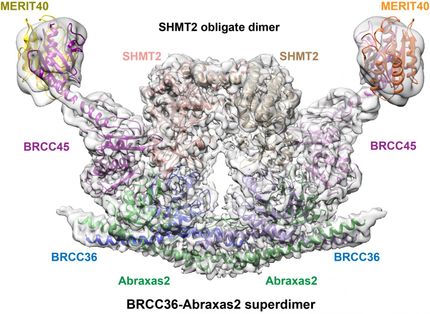Study shows breast cancer drug ABRAXANE increases survival time for advanced pancreatic cancer
Advertisement
An international study of cancer drug ABRAXANE ® (nanoparticle albumin-bound paclitaxel) has shown promising results for patients with advanced pancreatic cancer when used in combination with Gemcitabine.
Abraxis BioScience, Inc.announced findings from the phase I/II study, which showed patients’ overall survival time almost doubled, and levels of a major tumour marker were decreased by more than 20 per cent in all trial patients.
Specialised Therapeutics Australia Chief Executive Officer Mr Carlo Montagner, said: “As we advance our pivotal Phase III registration trials of ABRAXANE in pancreatic cancer and melanoma, we look forward to potentially bringing a new treatment option to patients with these difficult to treat cancers,.. While approval may be several years away, we are extremely encouraged by these results.”
The study showed that in 44 patients treated at the recommended dose of 125 mg/m2 nab-paclitaxel plus gemcitabine (1000 mg/m2), the median overall survival (OS) time was 12.2 months, a doubling of survival compared to the historical control of gemcitabine administered alone.
This combination of nab-paclitaxel and gemcitabine also resulted in a confirmed overall response rate in 50 percent of patients treated, and a disease control rate (CR, PR and stable disease for 16 weeks or longer according to RECIST criteria) of 68 percent. In the overall study (n=67), three patients achieved a complete response.
The findings were included in a keynote address by Daniel Von Hoff, M.D., "Epithelium and Stroma: Double Trouble," during the "Progress in Pancreatic Cancer" session on April 18 at the 101st Annual Meeting of the American Association for Cancer Research (AACR) being held in Washington, D.C.
"The results of this study demonstrate that the combination of nab-paclitaxel and gemcitabine at the recommended dose of 125 mg/m2nab-paclitaxel has substantial antitumour activity,” Mr Von Hoff said.
“One hundred percent of the patients in the 125 mg/m2 nab-paclitaxel arm (n=44) tested for the serum carbohydrate antigen CA 19-9 demonstrated a greater than 20 percent decrease in levels of the tumour marker, a degree of decrease which has been shown to be correlated with improved overall survival.1-3"
The biomarker CA19-9 is a tumour-associated antigen that has been shown to be highly specific and sensitive for pancreatic cancer; approximately three-quarters of all pancreatic cancer patients have elevated baseline serum CA19-9 level at baseline.4
Of the 54 patients in the trial interrogated for CA 19-9, 69 percent had a greater than 70 percent decrease in levels of the biomarker, which correlated to a median overall survival of 15.6 months in this subset.




























































